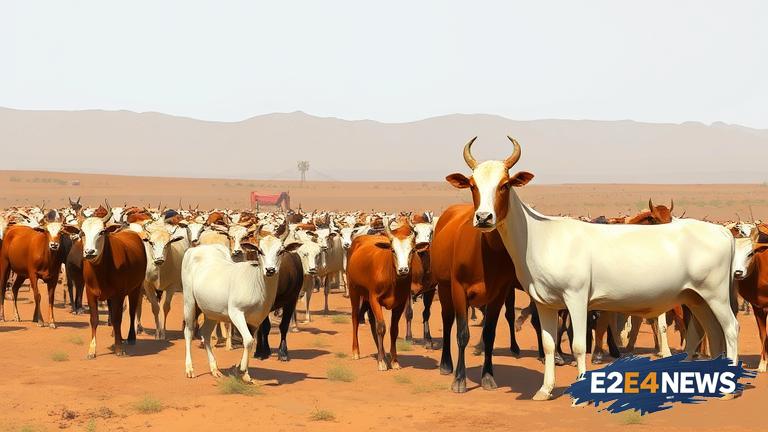Morocco has recently conducted a national census of its livestock population, and the results are noteworthy. According to the census, the country is home to over 32 million livestock, including cattle, sheep, goats, and other animals. This significant increase in the livestock population is a testament to the country’s growing agricultural sector. The census, which was conducted by the Ministry of Agriculture, Fisheries, and Rural Development, aimed to provide an accurate count of the country’s livestock population. The results of the census will be used to inform policy decisions and develop strategies to support the growth of the agricultural sector. Morocco’s livestock population plays a crucial role in the country’s economy, with many farmers relying on animal husbandry as a source of income. The census found that the majority of the livestock population consists of sheep and goats, with over 20 million animals recorded. Cattle and other animals, such as horses and donkeys, also make up a significant portion of the population. The increase in the livestock population can be attributed to a number of factors, including government initiatives to support the agricultural sector and improve animal health. The Moroccan government has implemented various programs to provide farmers with access to veterinary care, feed, and other essential resources. Additionally, the country has invested in the development of its agricultural infrastructure, including the construction of new roads and irrigation systems. The growth of the livestock population is also expected to have a positive impact on the country’s food security, with an increase in the production of meat, dairy products, and other animal-derived foods. Furthermore, the livestock sector is an important source of employment in Morocco, with many people working in the industry as farmers, herders, or veterinarians. The census results will be used to identify areas where support is needed and to develop targeted interventions to improve the livelihoods of farmers and herders. The Moroccan government is committed to supporting the growth of the agricultural sector and has set ambitious targets to increase agricultural production and improve food security. The country is also working to promote sustainable agricultural practices and reduce the environmental impact of farming. In addition to the economic benefits, the growth of the livestock population is also expected to have social and cultural benefits, with many communities relying on traditional livestock practices as a source of identity and cultural heritage. The census results will be used to inform policy decisions and develop strategies to support the preservation of these traditional practices. Overall, the results of the national livestock census are a positive indication of the growth and development of Morocco’s agricultural sector. The country’s commitment to supporting the sector and promoting sustainable agricultural practices is expected to have a lasting impact on the livelihoods of farmers and herders, as well as the environment and the economy as a whole. With the livestock population expected to continue growing, Morocco is well-positioned to become a major player in the global agricultural market. The country’s strategic location and favorable climate make it an ideal location for farming and animal husbandry, and the government is working to capitalize on these advantages to drive economic growth and development. In conclusion, the results of Morocco’s national livestock census are a significant achievement and a testament to the country’s growing agricultural sector. The census provides valuable insights into the country’s livestock population and will be used to inform policy decisions and develop strategies to support the growth of the sector.
